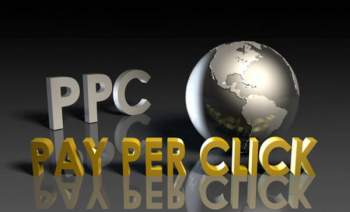
4 Important Questions Answered about PPC

Popular In Online Advertising
Online Marketing Online Marketing Jobs What Is Online Marketing Online Marketing Strategies Internet Marketing Agency Interactive Advertising Bureau Internet Marketing Consultants Legal Illegal Web Marketing About Advertising Online Marketing Company Ppc Price Per Click Free Advertising
What is PPC (Price per Click)?
The concept of PPC – an acronym for ‘Price per Click’ – is a type of online marketing strategy that is implemented by a variety of websites and webhosts with regard to vendors and commercial institution wishing to undertake online marketing and advertising efforts. Although the nature of specific PPC plans is subject to variation, the primary ideology behind PPC is the provision of opportunity for a vendor to undertake advertising efforts with regard to the presumed effectiveness of consumer response to such advertising; in lieu of a flat fee furnished by the vendor to the host website, fees are incurred in tandem with the amount of ‘clicks’ or engagements undertaken by a consumer with regard to that vendor’s advertisement:
How Does PPC Work?
A website, which is also known as the ‘host site’ will allow a vendor to advertise its products or services offered on that specific website; due to the fact that bulk of PPC advertising implements text-based advertising, the name of that particular vendor or product will appear on the website – in the event that a visitor to that particular website clicks on the advertised link, that ‘click’ will result in a predetermined fee owed to the host site by the vendor.
What is the Ideology of PPC with regard to Online Advertising?
Online Advertising efforts – such as those defined as PPC or CPC (cost per click) - are employed in order to heighten consumer awareness of the commercial presence, value, or availability of specific products or services offered by vendors:
A popular theme within the online advertising industry maintains that the quality of a specific product or service that lacks sufficient public awareness or presence may not render profitability; in essence, the degree of collective consumer awareness enacted within the virtual, commercial marketplace with regard to that product or service exists in correlation to the commercial value of a product or service
Products or services lacking sufficient advertisement are perceived to be at significant disadvantages, as a result PPC advertising is considered to significantly increase potential sales, as well as prompt the growth of consumer consumption and profit
What are the Different Types of PPC Advertising?
As previously stated, there exist a variety of terms and conditions within the field of PPC advertising; the following guide illustrates the 2 primary methods in which PPC advertising takes place:
Fixed Rate PPC: Fixed rate PPC allows for the vendor undertaking a PPC advertising plan with a hosting website to furnish a finite, determined amount of payment rendered upon each consumer click on that specific advertisement.
Bid-based PPC: In certain cases, vendors will participate in bid-based PPC advertising efforts, which involves individual pricing specific to individual ‘keywords’ – or words searched within a search engine. Due to the fact the individual keywords retain individual values with regard to the PPC industry, vendors will typically express a set fee that they are willing to furnish with regard to the implicit fee incurred as a result of specific PPC advertising on individual host sites.
NEXT: Everything You Want to Know About Online Advertising





















